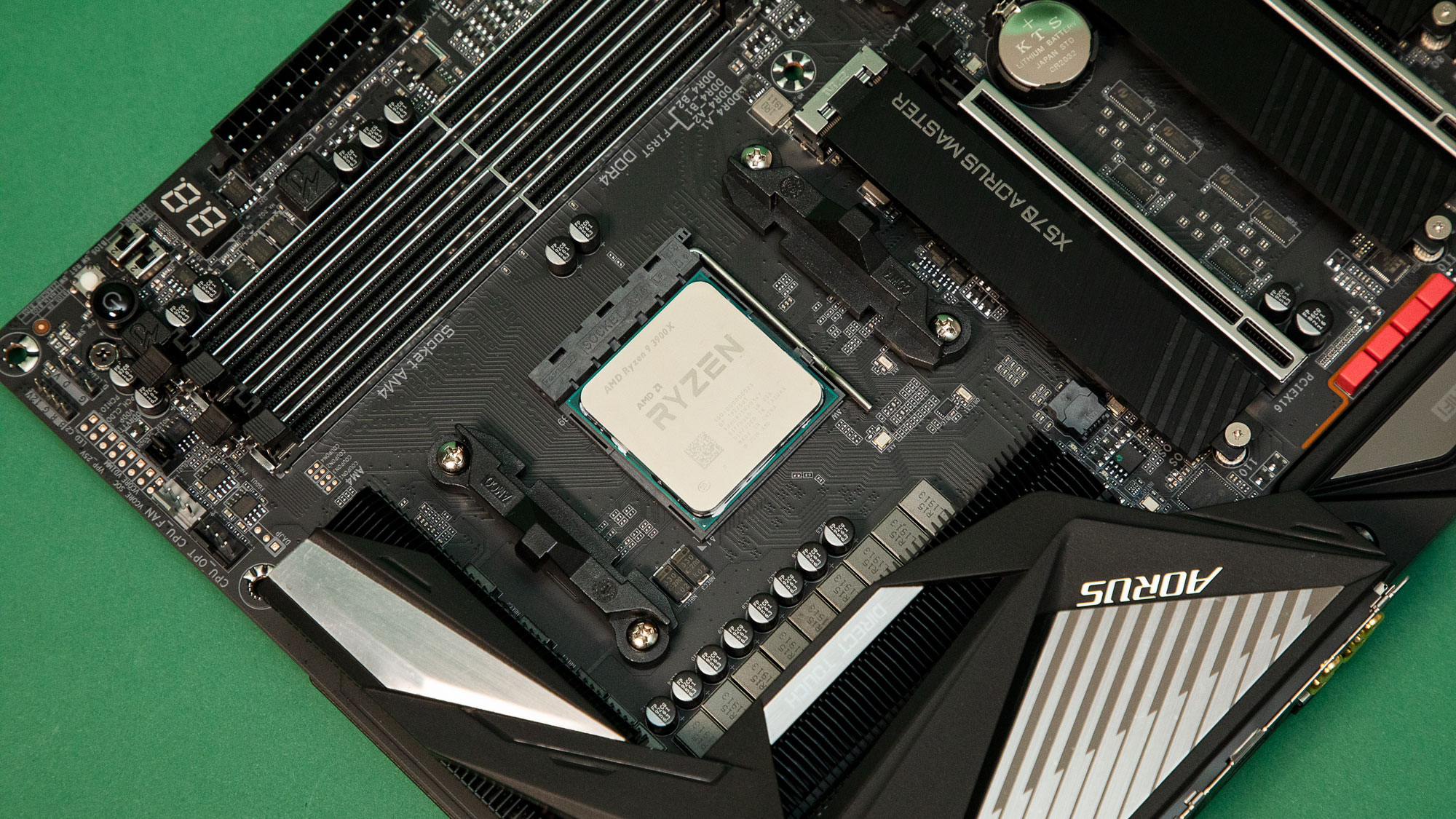AMD Ryzen 3000 processors could disappoint overclockers
Full stats from Silicon Lottery are a real eye-opener – but you‘re getting close to max performance out of the box

AMD Ryzen 3000 processors have little available headroom for overclocking, as we’ve previously heard from Silicon Lottery, a company which sells pre-selected CPUs with guaranteed overclock speeds – known as pre-binned – but now that outfit has released the full details of how these new Ryzen chips performed.
And the fresh statistics are quite an eye-opener. When it came to AMD’s flagship 12-core chip, Silicon Lottery found that the Ryzen 9 3900X could be pushed to 4.2GHz (on 1.25V) across all cores on only 6% of the CPUs the company was reselling.
- Nvidia RTX 2080 dry ice overclock draws interesting conclusions
- Check out the incoming Ryzen 9 3950X
- These are the best processors
The top 35% of processors managed 4.15GHz (1.237V), whereas 68% could successfully reach 4.1GHz (1.225V). 87% of the flagship CPUs hit 4.05GHz, and every chip that passed through Silicon Lottery’s overclocking mitts was capable of being cranked to 4GHz (1.2V).
So as you can see that’s a pretty narrow range, and little room for overclocking maneuvering. The majority of 3900X chips could be pushed to 4.1GHz, with a third of these processors able to go past that a little to 4.15GHz – but only one in 20 could get further to 4.2GHz.
In other words, there’s very little evidence of the usual CPU ‘lottery’ (which this company is named after), whereby chips of the same model can vary quite a lot in their overclocking potential. There’s little variance here, with every processor created more equally than is the norm with CPU production.
That story continues down the Ryzen 3000 range: the top 20% of 8-core Ryzen 7 3800X CPUs could push to 4.3GHz (on 1.3V), and 53% could reach 4.25GHz (1.287V), with all chips able to hit 4.2GHz (1.275V).
And with the Ryzen 7 3700X, Silicon Lottery found 21% of chips managed 4.15GHz (1.26V), 74% reached 4.10GHz (1.25V), and all the processors could be pushed up to 4.05GHz (1.237V). Again, that’s a very tight range – the vast majority could hit 4.1GHz, with only a fifth able to crank that just a touch more to 4.15GHz.
Get daily insight, inspiration and deals in your inbox
Sign up for breaking news, reviews, opinion, top tech deals, and more.
So, at least going by these figures, it would seem that if you want to get that ‘golden’ processor which has loads of room to push for overclocking with a beefy cooling solution, Ryzen 3000 doesn’t hold a great deal of promise in that respect.
Fairer shout
However, the alternative way to view Ryzen 3rd-gen models having less overclocking headroom is that it means the average consumer is getting a fairer shout.
Certainly it would seem if you’re buying a higher-end Ryzen CPU like the models highlighted here, you’re likely getting pretty close to the maximum performance out of the box, without having to bother with any overclocking. And of course most people don’t want to think about overclocking, fancy cooling solutions and so forth – that’s enthusiast territory.
That said, there’s clearly still a market for pre-binned processors sold by the likes of Silicon Lottery, as the company has sold out of its Ryzen 3000 offerings – the whole lot of them.
And other firms are now getting in on the pre-binned act, with German retailer Caseking selling pre-tested Ryzen 3rd-gen processors offering guaranteed overclock speeds, in conjunction with well-known expert overclocker Der8auer.
Note that Caseking has pushed further than Silicon Lottery, having stock of a Ryzen 7 3700X processor cranked up to 4.3GHz at the time of writing – although the retailer doesn’t specify the voltage used, other than noting that it doesn’t exceed the safe limit of 1.4V.
However, the retailer further observes that due to the big overclock here, you will need a powerful cooling system, with at least a “240 AiO water cooling system” recommended.
- Here are the details you need to know about AMD's Zen 2
Via Wccftech
Darren is a freelancer writing news and features for TechRadar (and occasionally T3) across a broad range of computing topics including CPUs, GPUs, various other hardware, VPNs, antivirus and more. He has written about tech for the best part of three decades, and writes books in his spare time (his debut novel - 'I Know What You Did Last Supper' - was published by Hachette UK in 2013).